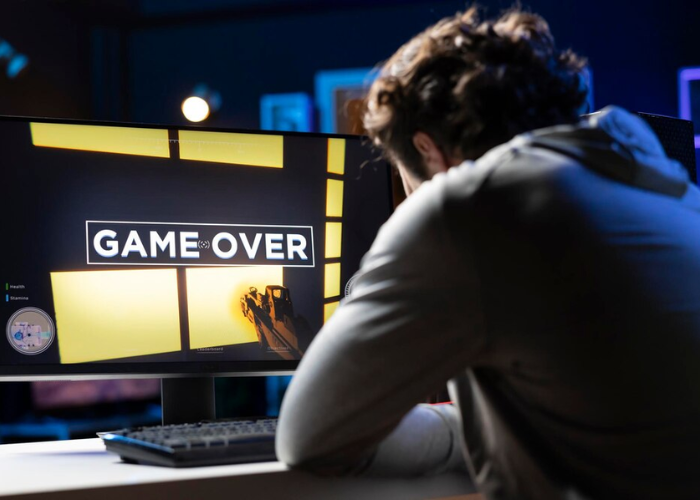Gaming laptops are designed to handle intense workloads, but a 92 Degrees CPU Gaming Laptoptemperature can be alarming. This comprehensive guide explores why CPU temperature matters, how such high temperatures occur, and practical ways to keep your gaming device cool and efficient. Proper temperature management is vital to ensuring optimal performance and longevity.
Understanding CPU Temperature in Gaming Laptops
What Is CPU Temperature?
CPU temperature refers to the heat generated by the processor while running applications. It is measured in degrees Celsius using built-in sensors. Gaming laptops often experience temperature spikes due to demanding tasks such as gaming and multimedia rendering. Ideally, gaming laptops should maintain a temperature range between 70°C and 85°C during intense gameplay. A temperature exceeding this range could lead to complications.
Why Does CPU Temperature Matter?
High CPU temperatures significantly impact the performance and durability of your gaming laptop. When a laptop reaches 92 degrees, the following issues may arise:
- Performance Throttling: Overheating forces the CPU to reduce its clock speed, resulting in slower performance.
- Risk of Damage: Continuous exposure to high temperatures can degrade internal components, leading to malfunctions or permanent damage.
- Unstable Gaming Experience: Players may experience stutters, lags, or even crashes, disrupting gameplay.
For those dealing with a 92 Degress CPU Gaming Laptop, addressing these challenges through proper cooling techniques and maintenance is essential. Understanding and managing CPU temperatures is crucial to maintaining a seamless gaming experience.
Why a CPU Reaches 92 Degrees on a Gaming Laptop
High-Performance Demand
Gaming laptops, like a 92 Degress CPU Gaming Laptop, are designed for resource-intensive tasks. Modern games with high-resolution textures, detailed environments, and dynamic lighting push the processor to its limits. This intensive workload generates excessive heat, especially during prolonged sessions.
Poor Ventilation or Cooling Design
Many gaming laptops have compact designs to maintain portability. However, this limits airflow and cooling efficiency. Common design issues include:
- Inefficient heat dissipation due to small heat sinks.
- Blocked or poorly positioned vents.
Ambient Room Temperature
External factors such as room temperature can significantly impact internal cooling. Operating a gaming laptop in a hot environment exacerbates heat buildup. This is particularly problematic in poorly ventilated spaces.
Dust and Maintenance Issues
Dust accumulation in vents, fans, and other components restricts airflow, making it difficult for the cooling system to function effectively. Over time, this leads to overheating. Regular cleaning is essential to maintain proper airflow and prevent such issues.
Effects of High CPU Temperatures
Performance Throttling
When the CPU reaches 92 degrees, it may reduce its clock speed to prevent further temperature increases. This process, known as thermal throttling, directly impacts performance by slowing down tasks. Gamers may notice reduced frame rates and sluggish responsiveness.
Reduced Lifespan of Components
Excessive heat accelerates wear and tear on internal components such as the CPU, GPU, and motherboard. Prolonged overheating can result in:
- Premature hardware failure.
- Increased repair or replacement costs.
Unstable Gaming Experience
Overheating disrupts system stability, leading to:
- Frequent crashes.
- Lagging or freezing during gameplay.
Keeping the CPU temperature under control ensures a smoother and more enjoyable gaming experience.
For more insights into managing gaming laptops and staying updated with the latest tech innovations, check out Pro-reed.com Tech Tales, where expert advice and tech solutions are shared to keep your devices performing at their best.
How to Prevent a CPU from Reaching 92 Degrees
Optimize Game Settings
Reducing graphics settings can significantly lower the CPU’s workload, especially on a 92 Degress CPU Gaming Laptop. Opt for medium or low settings for resource-intensive games, and disable features like ray tracing and anti-aliasing to reduce heat.
Improve Ventilation
Proper airflow is essential to keep the CPU cool. Here are some practical tips:
- Place the laptop on a hard, flat surface to prevent vent blockage.
- Use cooling pads or external fans to enhance airflow and heat dissipation.
Regular Maintenance
Routine cleaning of vents and fans prevents dust accumulation, ensuring efficient cooling. Disassemble the laptop if necessary or use compressed air to remove stubborn dust particles.
Monitor and Control Temperature
Install software such as HWMonitor, Core Temp, or MSI Afterburner to track CPU temperature in real time. Adjusting fan speeds or undervolting the CPU can help manage heat more effectively.
Invest in Quality Cooling Solutions
Advanced cooling solutions, such as liquid cooling systems or high-performance thermal compounds, can significantly reduce heat buildup in a 92 Degress CPU Gaming Laptop, especially for users engaged in prolonged gaming sessions.
When to Be Concerned About 92 Degrees CPU Temperature
Short Bursts vs. Prolonged Heat
A CPU hitting 92 degrees for short bursts during intense tasks is usually safe. However, prolonged exposure to high temperatures indicates a serious problem. Continuous overheating necessitates immediate action to prevent long-term damage.
Signs of Overheating Problems
Warning signs of overheating include:
- Frequent, unexpected shutdowns.
- Excessively loud fan noise.
- A burning smell from the laptop.
These issues should be addressed promptly to prevent further complications.
Gaming Laptops Known for Efficient Cooling
Top Gaming Laptops with Good Thermal Performance
Several brands prioritize efficient cooling in their gaming laptops. Notable examples include:
- ASUS ROG Zephyrus: Known for its advanced airflow and vapor chamber cooling.
- Alienware m15 R7: Features innovative fan designs and high-performance cooling systems.
- MSI GE66 Raider: Equipped with multiple fans and heat pipes for effective heat management.
Innovative Cooling Technologies
Modern gaming laptops incorporate advanced cooling technologies, such as:
- Liquid Metal Thermal Paste: Improves heat transfer from the CPU to the heat sink.
- Vapor Chambers: Efficiently dissipate heat across a larger surface area.
- Dynamic Fan Control: Allows users to adjust fan speeds based on workload.
These innovations ensure that gaming laptops remain cool and efficient even during demanding tasks.
Conclusion: 92 Degress CPU Gaming Laptop
Managing the heat in a 92 degrees CPU gaming laptop is crucial for maintaining performance and extending hardware longevity. By optimizing game settings, improving ventilation, performing regular maintenance, and investing in advanced cooling solutions, you can prevent overheating and enjoy seamless gaming experiences. Always prioritize temperature management to keep your laptop running efficiently and safely.
Effective cooling systems play a vital role in maintaining optimal CPU temperatures, especially for gaming laptops. Understanding the principles and methods of computer cooling can help users make informed decisions about managing heat and ensuring long-term hardware performance.
FAQs On 92 Degress CPU Gaming Laptop
Is 92 degrees safe for a gaming laptop CPU?
A CPU temperature of 92 degrees is acceptable for short bursts but should not be sustained for extended periods. Implement cooling measures if the temperature remains high.
What is the ideal temperature for a gaming laptop CPU?
The ideal temperature range for a gaming laptop CPU is 70°C to 85°C under heavy load. Staying within this range ensures optimal performance and longevity.
Can a cooling pad help reduce CPU temperature?
Yes, cooling pads improve airflow and help lower CPU temperatures, especially during prolonged gaming sessions. They are an affordable and effective solution.
How often should I clean my gaming laptop to prevent overheating?
Cleaning the laptop every 3-6 months ensures proper airflow and reduces the risk of overheating. Dust-free vents and fans enhance cooling efficiency.
What should I do if my gaming laptop overheats frequently?
Frequent overheating can be addressed by:
- Regular maintenance and cleaning.
- Optimizing game settings.
- Using external cooling solutions like pads or fans.
By adopting these practices, you can maintain a stable temperature and prolong your laptop’s lifespan.










